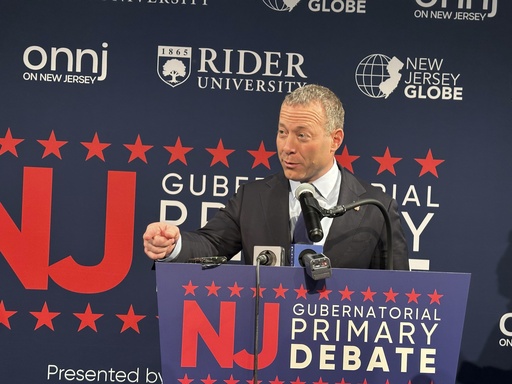WASHINGTON — A bipartisan initiative has emerged in the U.S. House, aiming to implement a ban on the Chinese AI application DeepSeek for federal devices, drawing parallels with existing restrictions on the widely-used social media app TikTok.
Representatives Josh Gottheimer from New Jersey and Darin LaHood from Illinois together unveiled the “No DeepSeek on Government Devices Act” on Thursday. This proposed legislation prohibits federal workers from using DeepSeek on any government-owned electronic devices, citing national security concerns and the potential for government surveillance and misinformation by the Chinese regime.
“The Chinese Communist Party has made it abundantly clear that it will exploit any tool at its disposal to undermine our national security, spew harmful disinformation, and collect data on Americans,” Gottheimer articulated in a statement. “We simply can’t risk the CCP infiltrating the devices of our government officials and jeopardizing our national security.”
This proposal arises in the wake of the software company’s release in December of an AI model that competes with similar developments by American firms, including OpenAI, Meta, and Alphabet, at a significantly lower cost. A research paper published in January highlighting DeepSeek’s capabilities sparked concern and led to discussions among policymakers and Silicon Valley leaders.
As the AI landscape evolves, the competition between the United States and China intensifies across various sectors, particularly in technology. The U.S. has imposed tariffs on Chinese imports, curtailed the participation of Chinese tech companies like Huawei in government infrastructures, and prohibited exports of advanced microchips necessary for top-tier AI models.
Last year, Congress and then-President Joe Biden pushed for the divestment of TikTok from its Chinese parent company or risk facing a nationwide ban, though this policy is currently paused. Previously, President Donald Trump initiated a ban during his term, and he recently signed an executive order to extend the pending solution deadline before a legally mandated ban takes effect.
In early 2023, President Biden issued a ban on TikTok across federal-issued devices.
“The technology race with the Chinese Communist Party is not one the United States can afford to lose,” LaHood stated. “This commonsense, bipartisan piece of legislation will ban the app from federal workers’ phones while closing backdoor operations the company seeks to exploit for access. It is critical that Congress safeguard Americans’ data and continue to ensure American leadership in AI.”
The proposed bill specifically targets DeepSeek and any AI applications associated with its parent organization, High-Flyer hedge fund. Certain national security and research exemptions are included, allowing federal employees to analyze DeepSeek’s capabilities.
Some legislators advocate for more extensive measures. A recent bill by Senator Josh Hawley from Missouri seeks to prohibit all imports and exports of AI technology from China, citing national security alarms.
Other countries have taken similar actions against DeepSeek’s chatbot, restricting access due to security threats. For instance, Italy’s data protection authority recently blocked the app to protect user data while launching an investigation into the companies involved. Taiwan has prohibited its governmental departments from utilizing DeepSeek’s AI, and South Korea’s industry ministry has temporarily suspended employee access to the platform. Remarkably, Australia announced its ban on DeepSeek for government systems and devices this week.
In Texas, Governor Greg Abbott has issued an order banning both DeepSeek and RedNote—a Chinese alternative to TikTok—from any state government-issued devices.




